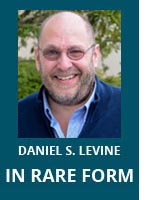
When Mark Clements ran the St. George Marathon in southern Utah in 2005, he suffered stomach problems. They persisted when he returned home to Salt Lake City and he soon sought medical care, which led to a diagnosis that he had a rare, terminal cancer.
Clements , an attorney and serial entrepreneur, was diagnosed with cholangiocarcinoma, a bile duct cancer. Two months after his diagnosis, Clements’ fourth child was born, and he stopped working to spend time with his family. His sisters embarked on an ongoing research effort to find a treatment. One sister scoured cancer research papers, another dove into alternative therapies, and the third explored the world of nutrition. They would come together on the weekends and share what they found with Clements and his wife Marianne. They would then decide what to try next. Cholangiocarcinoma was a poorly understood cancer. There were no treatments and what clinical trials they had found had been closed due to lack of enrollment.
Their efforts grew into an online discussion board with other patients with cholangiocarcinoma. Clements died in January 2007, 15 months after his diagnosis. But when his fate was clear, he asked his sister Stacie Lindsey what she was going to do with the discussion board, all of the information they had accumulated, and the contacts with researchers and doctors they had made, after he was gone. When she said she didn’t know, he told her they should start a foundation because “there are not a lot of people who are going to have families like ours.”
It was a recognition of the importance information can play in improving patient lives and how difficult it can be for most people to collect that information that led to the creation of the Cholangiocarcinoma Foundation. Today, our understanding of what is possible with information is being radically remade with the advent of Big Data, and the Cholangiocarcinoma Foundation is finding itself at the forefront of that.
Big Data—the harnessing of massive stores of structured and unstructured information—offers the promise to provide new insights to improve all aspects of healthcare, but the computing muscle, access to data, and sophisticated artificial intelligence to capitalize on this potential would seem to be out of reach for most rare disease nonprofits.
Nevertheless, a collaboration, between the Cholangiocarcinoma Foundation and the health data and analytics company Komodo Health, shows how one patient group is able to leverage Big Data analytics to accomplish a number of different projects to improve the care of patients with the rare cancer.
Komodo Health works with life sciences companies, payers, researchers, and patient advocates. It has developed what it calls its “Healthcare Map,” a real time picture of the healthcare landscape drawn from more than 500 data sources including de-identified electronic health records, claims records, and other elements. It has developed an artificial intelligence platform to interrogate and analyze the data.
Komodo happened to reach out to the Cholangiocarcinoma Foundation as a test case because someone at the company had a connection with the condition. What followed, though, is an example of several different ways that a rare disease patient group could leverage this new world of data.
The first project the Cholangiocarcinoma Foundation undertook with Komodo involved educating doctors about the value of next generation sequencing of cholangiocarcinoma tumors because there are now drugs on the market that can benefit some of these patients depending on the mutations driving their cancer. The problem was that while oncologists at major cancer centers routinely order genetic profiles of patient tumors to determine treatment options, doctors in community settings generally do not. About 85 percent of cancer patients are treated at community hospital.
Working with Komodo, the foundation was able to identify doctors in the community setting who were treating patients with cholangiocarcinoma and began an education and outreach campaign to alert these doctors to potential treatments and the importance of sequencing these patients’ tumors.
“We identified centers that were seeing three to five cholangiocarcinoma patients a year and we would send them information,” said Lindsey, who is CEO of the foundation. “We did a community provider video that explained to them how many targets there are in cholangiocarcinoma and that there were clinical trials available to patients and that they should please get them profiled. We also sent them a video for their patients to help their patients understand it a little better.”
A second problem the foundation had was that it didn’t know where to send patients in need of care and it didn’t want to be in the business of being a referral service. The solution it hit upon was to use the Komodo data and apply unbiased criteria to create a state by state list of the top oncologists treating cholangiocarcinoma. That list is now published on the foundation’s website and updated quarterly.
The latest project the organization is working on is to get a clear understanding of the cholangiocarcinoma landscape today and its prevalence and incidence using the claims data Komodo has accumulated. The foundation thinks the actual rate may be twice what’s been reported to date.
“It took us some time because there was a significant language gap because we didn’t speak data and they didn’t speak advocacy,” said Lindsey, of the foundation’s work with Komodo. “It took some time to try to figure out each other’s language so that we can have meaningful discussions that we both come out understanding, but they’ve been really great to work with.”
Photo: Stacie Lindsey, founder and CEO of the Cholangiocarcinoma Foundation

Stay Connected
Sign up for updates straight to your inbox.
